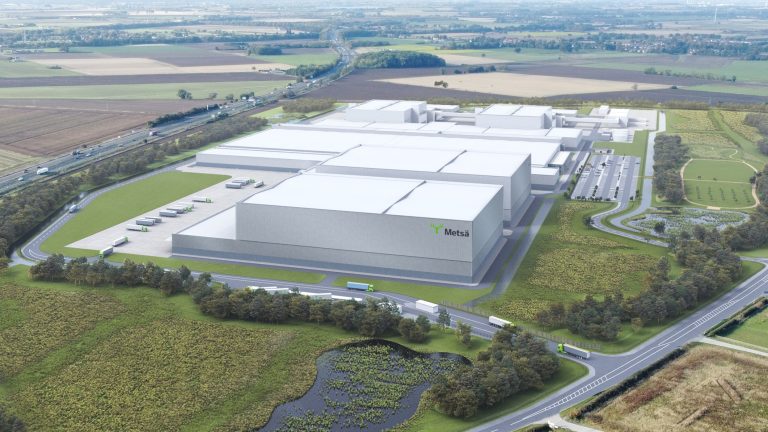The Humber Freeport has taken a major step forward with the approval of two landmark schemes at its Goole tax site, underscoring the town’s emergence as one of the UK’s most strategically significant locations for large-scale industrial and manufacturing investment.
Earlier this month, East Riding of Yorkshire Council’s Planning Committee gave the green light to two transformative projects: a three million sq ft tissue paper mill for Finnish manufacturer Metsä Tissue and a five million sq ft industrial and manufacturing park led by Henry Boot Developments (HBD) and landowner St John’s College, Cambridge.
A Manufacturing Powerhouse in the Making
The Metsä Tissue scheme, brought forward with Hull-based developer Wykeland Group, will create the UK’s largest tissue paper mill. Developed in phases, the plant will support up to 400 direct jobs while generating significant supply chain opportunities. Importantly, the facility will boost national self-sufficiency in tissue products by more than 30% — a strategic advantage in a sector heavily reliant on imports.
Beyond its immediate economic impact, the project carries wider resonance. At a time when sustainability and resilience dominate industry agendas, Metsä Tissue’s investment demonstrates both confidence in the UK market and commitment to advanced, low-carbon manufacturing practices.

The Scale of Opportunity
On the opposite side of the M62, HBD and St John’s College Cambridge will deliver an industrial park spanning more than five million sq ft. With units ranging from 40,000 sq ft to one million sq ft, the scheme is designed to appeal to a broad spectrum of occupiers, from mid-size manufacturers to global logistics operators.
Outline consent paves the way for developers to begin marketing the site to potential occupiers. Industry observers suggest demand is likely to be strong, given the scarcity of large, well-connected industrial land in northern England.
Why Goole, Why Now?
Goole’s appeal lies in its location and connectivity. Positioned on the M62 corridor, the town offers direct access to motorway, rail, and port networks, as well as proximity to major regional hubs such as Leeds, Hull, and Doncaster. This makes it an ideal base for both manufacturing and distribution.
The town already hosts a cluster of major occupiers including Siemens Mobility’s £200m train manufacturing plant, Tesco’s regional distribution centre, and Guardian Glass. The arrival of Metsä Tissue and the scale of HBD’s industrial park will further strengthen Goole’s profile as an investment hotspot.
The Freeport Effect
As one of three Humber Freeport tax sites (alongside Hull East and Able Humber Port near Immingham), Goole offers a package of incentives that developers and occupiers find compelling. These include enhanced capital allowances, employer National Insurance savings, and stamp duty land tax relief.
Professor Neal Juster, Interim Chair of Humber Freeport, describes the approvals as “a very significant step forward,” adding that they demonstrate the “powerful momentum behind the Freeport” and the quality of opportunities available to investors.
A Broader Market Context
The developments in Goole reflect wider trends across the UK property market. Demand for large industrial sites has remained robust, fuelled by supply chain reshoring, the growth of advanced manufacturing, and sustained demand from logistics operators. However, the pipeline of suitable land — particularly in the North — remains constrained.
By unlocking over eight million sq ft of new employment space between them, the Goole projects are set to ease that pressure, while reinforcing the Humber’s credentials as a hub for sustainable growth.
Looking Ahead
Both projects are subject to conditions and legal agreements, but the direction of travel is clear. With Metsä Tissue and Wykeland Group committed to a long-term, phased build-out, and HBD preparing to market plots to potential occupiers, Goole is on track to become one of the UK’s most dynamic centres for industrial development.
For developers, investors, and occupiers alike, the message is unambiguous: Goole is open for business — and it’s scaling fast.


